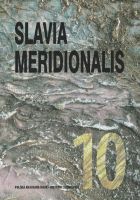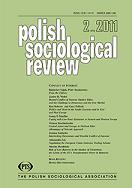
Multi-volume Polish-Bulgarian Confrontative Grammar
Wielotomowa gramatyka konfrontatywna języka bułgarskiego i polskiego
Keywords: Bulgarian language; Polish language; confrontative grammar; tertium comparationis; semantics; interlanguage
PolishBulgarian Confrontative Grammar (GKBP) is the first and so far the only expanded attempt to make the semantic confrontation with the gradually developed interlanguage. GKBP consists of 9 volumes which were published in 12 volumen. It was decided to arrange the description of Polish-Bulgarian confrontative grammar in the direction from the contents to the form. The semantic interlanguage enabled the emergence of two equivalent grammars: the grammar of the modern Bulgarian language and the grammar of the modern Polish language. The analysis of semantic categories, which was applied in GKBP, ensures the coherent confrontative description, irrespective of whether the described languages have grammatical exponent of meanings or not. GKBP falls into the stream of modern theoretical confrontative research based on the logical theory of quantification, on the modern theory of processes titled „Petri nets”, and on the theory of logical predicate-argument structures. Our research removes the exact division into grammatical and lexical levels, thanks to which our research has introduced a lot of new observations of the examined phenomena. Universal semantic linguistic categories such as the time, the modality, the definiteness / the indefiniteness and the semantic case – which are essential for the language description, but have not yet been examined and have not been sufficiently described in the academic grammars of the Polish and Bulgarian languages – have been selected. The sequence of description in this synthesis was established not on the basis of order of developed volumes of GKBP, but on the basis of the generally accepted order of elements of the semantic structure of the sentence. The most external in the semantic structure of the sentence is its modal characteristics. Thereafter, the time, quantifiers and their order in the semantic structure of the sentence as well as the predicate-argument items are placed. Therefore, it is not an abbreviated summary of the issues analyzed in GKBP volumes. It is the description of selected semantic categories organized in accordance with the semantic order of the semantic structure of the Polish and Bulgarian sentences.
More...
